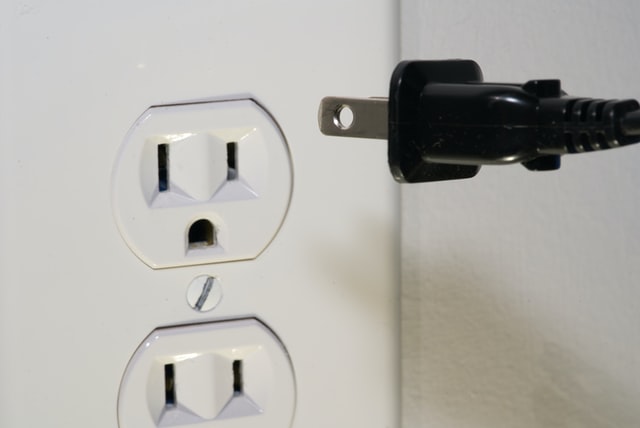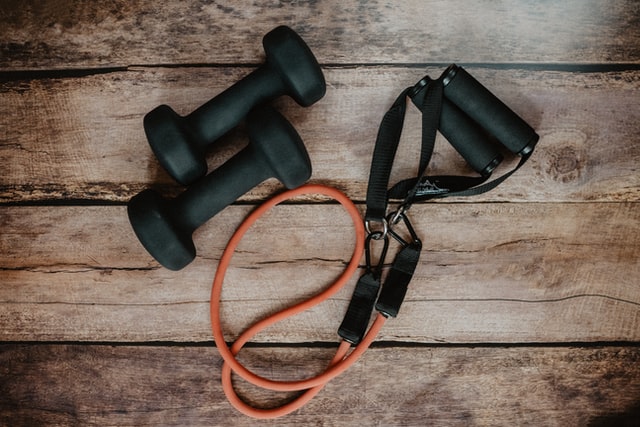
One of the greatest benefits of working remotely is employee flexibility. But with flexible work schedules often comes a very common side effect- constant fatigue.
As a freelancer myself, I can attest to the Irregular sleeping patterns, burning the midnight oil, and poor diet that many of my peers share. These types of behaviors eventually take a toll on our health, sooner or later.
In this post I’ll share some of my favorite strategies for overcoming frequent fatigue as a freelancer, and in the process, how to improve health and productivity to boot.
Start With A Nourishing Breakfast

By now, you’ve likely heard the century old adage about breakfast being the most important meal of the day. And yet, a recent survey discovered that up to 31 million Americans skip the morning meal.
What this does is that it throws off your body’s rhythm. When you wake up, your blood sugar levels are low. A proper breakfast helps replenish that. So when you skip breakfast, you’re denying your body the nutrients it needs to keep your energy levels up.
As a result, you feel fatigued for the better part of the day. To back this up, this study shows how skipping breakfast and taking meals irregularly cause fatigue.
If you want to have more energy during the day, experts recommend these healthy breakfast tips:
Include a protein: Breakfast is the best meal to pump up your protein intake. For one, it helps you develop and maintain lean muscle. Secondly, it staves off hunger, thus keeping you energized until your next meal. Examples of protein to have during breakfast are eggs and Greek yoghurt.
Consider a breakfast smoothie: Smoothies are chock full of nutrients and flavor. More importantly, they’ll keep you feeling refreshed and rejuvenated all day long. Blend nuts, fruits and vegetables to get the most benefit.
Go whole grain: Opt for a whole-grain breakfast cereal, whole-wheat toast or oatmeal. Unlike simple carbohydrates that provide short bursts of energy, whole grains provide long-lasting energy.
Include Brisk Walks in Your Routine

It may seem counterintuitive, but a quick way to shake your exhaustion is to get moving, specifically, go for a quick walk outdoors or just around the house. Walking improves blood circulation throughout your body, which in turn, gives you an energy boost.
Consider these statistics that quantify the benefits of moving:
- A 10-minute walk up and down the stairs gives you a greater energy boost than a jolt of caffeine
- A 20-minute nature walk serves as a natural stress-reliever
The best part is that even tiny amounts of movement can go a long way to helping you maintain energy throughout the day. Here are some activities that give you an opportunity to walk when working remotely:
- Take the stairs instead of the elevator whenever possible
- Take calls while walking
- Schedule water breaks
Use Essential Oils Around Your Home

Essential oils are concentrated extracts from different plant species. Usually, they’re obtained through water distillation or cold-pressing techniques.
Aromatherapy- the holistic healing approach that makes use of these plant extracts to promote health and wellbeing- has been around for a long time. But, it’s primarily been used to kill different strains of viral and bacterial infections and for pain relief.
Based on recent research though, essential oils can also be used to combat fatigue. In particular, inhaling rosemary oil has been found to provide stimulatory effects that improve your mood and fight low energy. This study also reveals that essential oils help to reduce stress, anxiety and fatigue.
It’s tempting to reach for a cup of coffee when you feel your energy levels waning. The problem with such caffeinated drinks is that they only provide sudden bursts of energy. This means that in the short term, they can improve your alertness, reaction time and mood. But as soon as the effects wear off or the caffeine gets metabolized, you start feeling exhausted. In contrast, aromatherapy provides a long-lasting solution.
So what’s the best way to use essential oils at home?
- Aromatically- use an essential oil diffuser in your home office
- Topically- use lotions, soaps and creams infused with essential oils
- Internally- consider adding pure grade lemon oil to your drinking water for a quick boost of energy. However, it’s always good to consult your general physician first. The FDA provides further guidelines on how to use essential oils safely.
Unplug at Night

As a remote worker, you’re more likely to sleep fewer hours than the average worker. AmeriSleep conducted a survey and found that up to 39.5% of remote workers sleep for just 6.5 hours each night.
Whether that’s because you’re working or watching movies on Netflix, staying up late is detrimental to your health. Research shows that losing just two hours of sleep is similar to the effects of having 3 beers in terms of cognitive impairment.
The good news is, it’s easy to develop a healthy sleep hygiene and avoid the effects of sleep deprivation. Start by unplugging from all screens at least an hour before retiring to bed.
Electronic devices emit blue light, which impedes melatonin production. Melatonin is the hormone that regulates your internal clock, dictating when you sleep and wake up.
This is why exposing yourself to blue light emitting devices disrupts the quantity and quality of sleep. The end result is sleep deprivation, which makes you feel fatigued and irritable the next day. Avoid fatigue by limiting your phone and laptop use at night.
In addition to unplugging, here are some other sleep habits you should adopt when working remotely:
- Watch what you eat and drink before you sleep (avoid stimulants)
- Create and stick to a sleep schedule
- Don’t take daytime naps
- Reserve your bed for sleep
Stay Hydrated!

If you’ve been feeling more fatigued than usual, you may think of adding vitamins or supplements to your diet. But something as easy as staying hydrated can make a huge difference to your energy levels.
Here’s the deal: your body weight is composed of around 50% to 60% water. It’s the fluid responsible for transporting nutrients and oxygen to cells, getting rid of certain waste products, and regulating body temperature.
One thing that people tend to forget is that we constantly lose water through sweat, urine, and breathing. Anytime you’re low on fluids, your body will start to feel tired and weak. To avoid this fatigue, ensure you constantly replenish the water your body loses.
Here are some nifty ways to keep you hydrated as a remote worker:
Make a water bottle a permanent desk fixture: This way, it will constantly remind you to hydrate throughout the day. The National Academies of Medicine recommends daily intake of 2.7 liters of fluids for females and 3.7 liters of fluid for males.
Snack on hydrating foods: Water-rich foods not only help to increase your fluid intake but also keep you from eating unhealthy calorie-filled snacks. Examples of foods with high water content include watermelons, cucumbers, strawberries, lettuce, celery just to mention a few.
Make your water exciting: Making your water more flavorful can encourage you to hydrate more often. Consider adding a squeeze of lemon or lime, infusing with berries or spicing it up with a cinnamon stick.
Indulge in Stress Relief Activities

When you’re feeling exhausted, it’s easy to blame it on common causes such as lack of sleep or poor health.
While these are perceptible triggers, one study reveals that work-related stress could be another reason why your energy levels are slumping. This article posted on Medical News Today also explains how stress causes both mental and physical exhaustion.
To avoid stress-induced fatigue, start by identifying work stressors in your remote environment. These could be heavy workloads, tight deadlines, lack of enough resources and more.
Next, look for ways to eliminate these stress triggers. You can ask for more time to handle demanding projects. Alternatively, ask for help from fellow remote workers and invest in necessary equipment you need to work efficiently.
One effective solution for stress-induced fatigue is to engage in recreational activities. Look for activities that bring you joy and peace of mind. Whether it’s taking a hot bath, solving a puzzle, listening to music or doing yoga, engage in something that helps you to relax
Have Smaller, More Frequent Meals

The easiest way to keep your energy levels up is to eat small, healthy portions of food throughout the day.
Rather than having three large meals, Healthline recommends eating something every three to four hours. The reasoning behind this strategy is that it minimizes your perception of fatigue. The smaller portions provide your brain with a constant supply of food. hence helping to maintain good cognitive function.
Don’t have enough time to prepare a nutrient-packed meal every couple of hours? Don’t worry, you shouldn’t be eating a three-course meal each time anyway. Something as simple as a fruit or a couple of nuts will do in between main meals.
Do Low-Intensity Workouts

A study by the University of Georgia revealed that participating in low-intensity workout can decrease fatigue levels by at least 65% and increase your energy levels by 20%.
But what exactly does low-intensity training (LIIT) mean? Well, this is when you exercise at about 50 to 70% of your maximum heart rate for a considerable amount of time.
Low-intensity workouts typically last for 30 to 60 minutes. This is contrary to high-intensity workouts where an individual has to exercise at maximum capacity for brief periods, usually, 30 to 45 seconds.
The greatest benefit of LIIT workouts is that they have a lot lower risk of injury. This makes them suitable even for remote workers who are new to the whole concept of working out. Here are some ideas of low-intensity workouts for remote workers:
- Hop into the pool – swimming is one of the simplest low-intensity workouts. You can go for a swim session or perform your favorite aerobics routine underwater.
- Do a slow row – row exercises can be low-intensity if you pace yourself more slowly.
- Do yoga at home- all you need is a mat.
- At your desk, consider doing some simple ergonomic stretches once an hour.
Wrap Up
Every remote worker experiences a series of energy highs and lows. But if the lows are happening more frequently, you could be experiencing a case of workplace fatigue. Fortunately, there are several initiatives you can take to overcome this exhaustion.
Follow the above tips to revitalize yourself and watch your productivity skyrocket as well.


